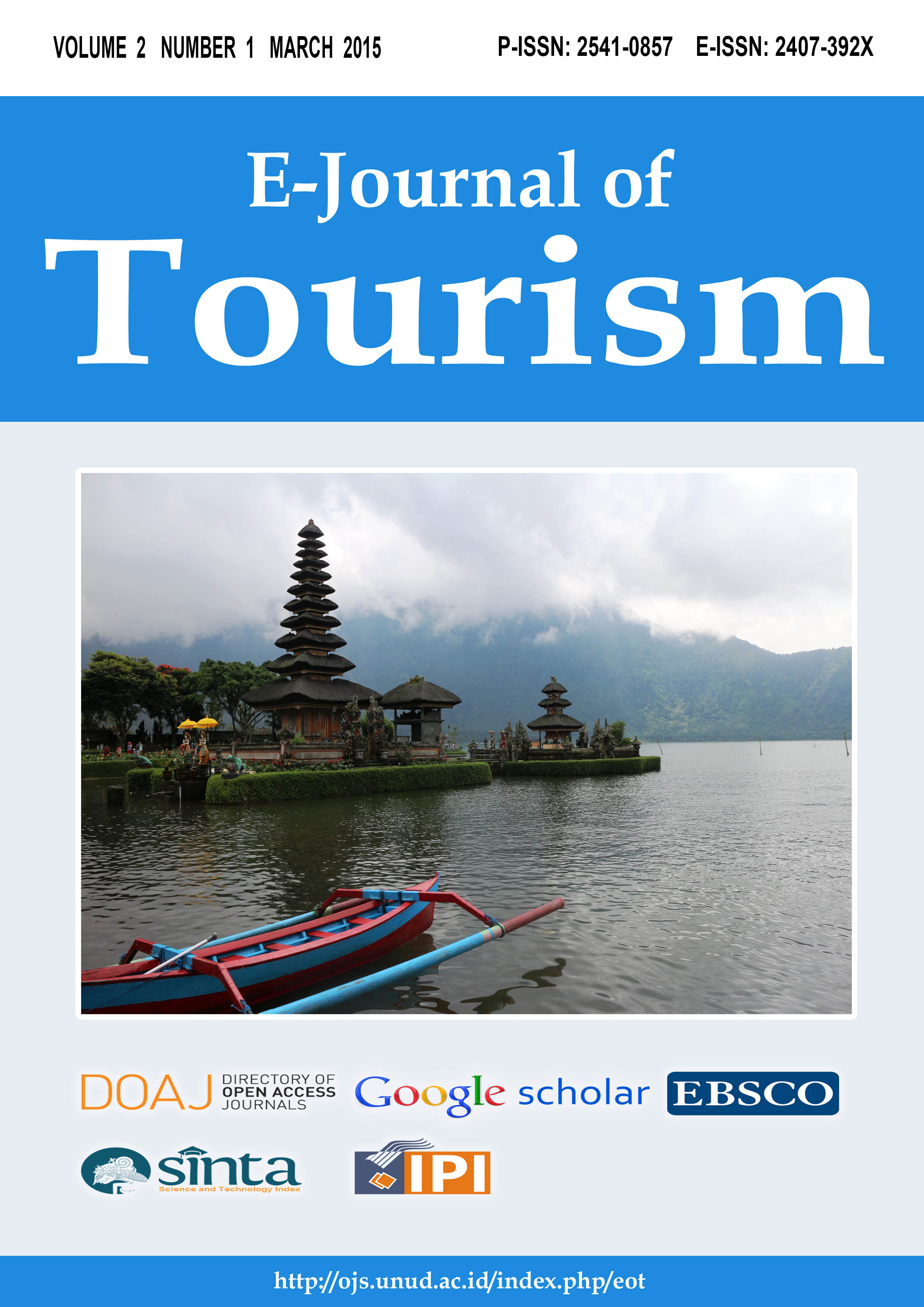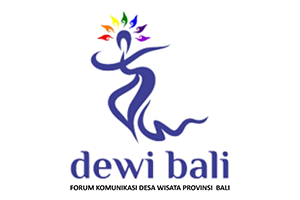Sustainable Development Strategy For Ecotourism at Tangkahan, North Sumatera
Abstract
Ecotourism Destination of Tangkahan is located at the edge of Gunung Leuser National Park, within the Sub-regency of Batang Serangan, Regency of Langkat, Province of North Sumatera, Indonesia. The Ecotourism Destination of Tangkahan relies upon a distinctive tourist attraction, namely elephant trekking that is undertaken along the edge of the river and in the Gunung Leuser National Park (GLNP), as well as the diversity of flora and fauna available at the GLNP. There are many activities can be undertaken by visitors at this destination, such as: elephant trekking, wildlife watching at the GLNP, trekking at the edge of Buluh river and come back by swimming wearing life jacket, tubing (traditional rafting) and canoeing at Batang Serangan river, swimming at Buluh river, camping and outbound activities at the camping ground, village tour at sub-village of Kuala Buluh, and traditional massage (pijat / kusuk) by local therapist. The research was undertaken to develop strategies which could be used as guidance in managing and developing this ecotourism destination. The proposed strategies were based upon the results of SWOT analysis. Data were assembled from the visitors’ survey, focus group discussions and workshop involving tourism stakeholders and several interested groups. Based upon the analysis of existing tourist attractions offered at the Ecotourism Destination of Tangkahan, it could be said that the nature based tourist attractions were considered to be interesting up to very interesting. The uniqueness of elephant jungle trekking in the GLNP was the tourism icon of the Ecotourism Destination of Tangkahan. Camping ground, plant nursery, and agriculture plantation were potential to be promoted as tourist attractions at the Ecotourism Destination of Tangkahan. Based upon the results of SWOT analysis of the Ecotourism Destination of Tangkahan, several strategies could be recommended for ecotourism development at Tangkahan, namely, to maintain the diversity of flora and fauna at GLNP as ecotourism attractions at Tangkahan, to develop nature based tourism with consideration on the principles of ecotourism and conservation, to improve safety measures for visitors and guides who are undertaking tourism activities at the ecotourism destination of Tangkahan, to revitalize the traditional music and dances that are existed at the community of Tangkahan to become a tourist attraction, to establish an effort to extend the elephant trekking attraction that has been available at Tangkahan, to increase the number of elephants at the Community Respons Unit (CRU) Tangkahan, which are available for elephant trekking for tourists in order to accommodate an increasing demand of the elephant trekking in the near future, to organise the schedule of elephant trekking activities during rainy season, to improve the quality and quantity of the accommodation available at Tangkahan, to establish an emergency system (Search and Rescue - SAR) at Tangkahan, establish a solid waste management system at Tangkahan, to develop sewarage treatment systems for accommodation and restaurant at Tangkahan, to develop land transportation facilities (particulatly roads) at Tangkahan, to improve the accesibility to the locations of tourist attractions within the ecotourism destination of Tangkahan, to establish a banking facility at Tangkahan, to build public toilets, as well as to establish a management of public toilet at Tangkahan, to establish an institution to manage parking area at Tangkahan and to establish electricity networks at the centre of Tangkahan tourist area.
Downloads
Keywords

This work is licensed under a Creative Commons Attribution 4.0 International License.
The copyright of the received article shall be assigned to the journal as the publisher of the journal. The intended copyright includes the right to publish the article in various forms (including reprints). The journal maintains the publishing rights to the published articles.




















